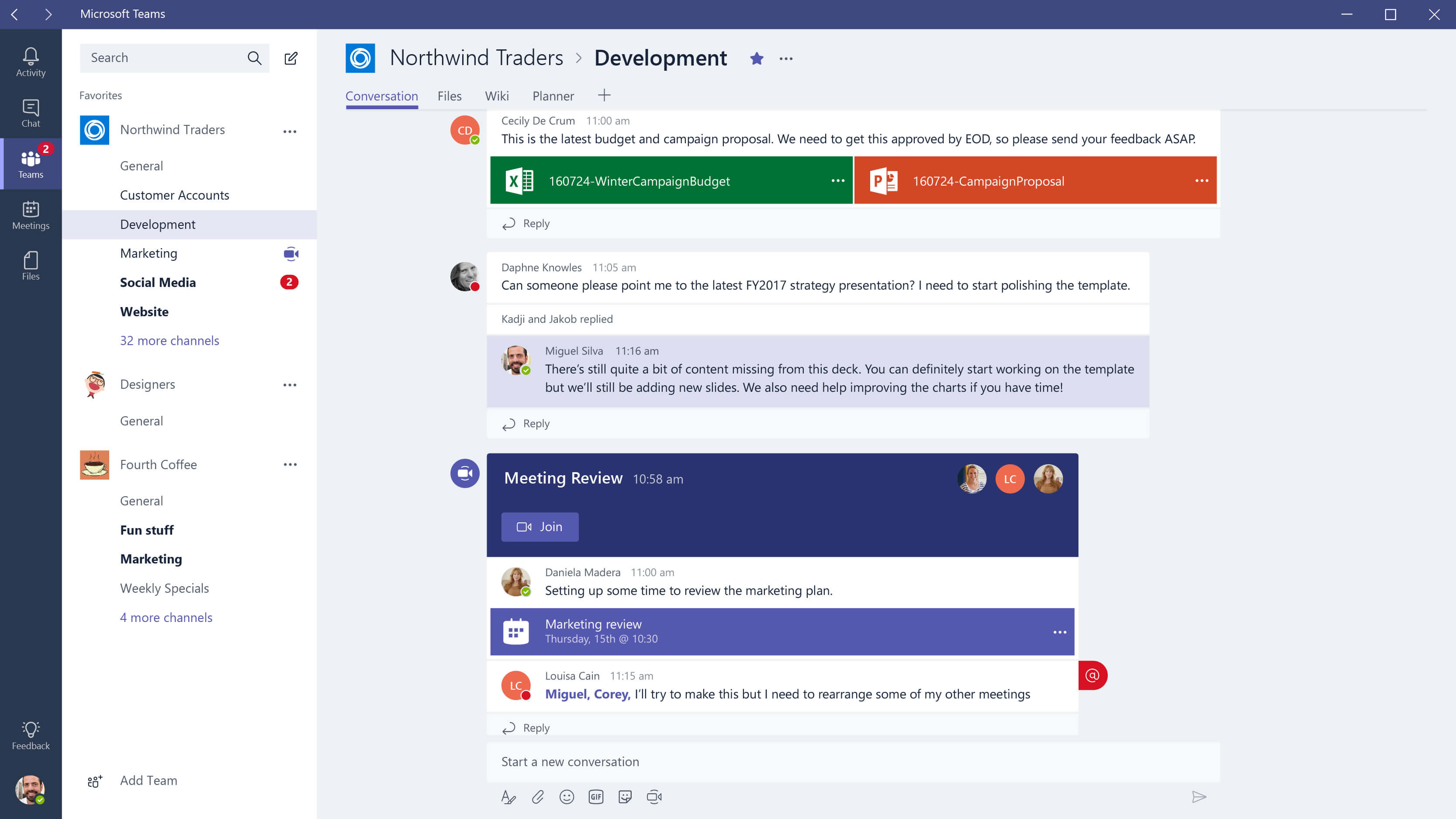In context: As it pertains to collaborative chat software, Slack and Microsoft's Teams have taken center stage over the past couple of years. Microsoft has gained ground in its battle with Slack, and both companies now offer compelling free versions. However, and perhaps unsurprisingly, it seems the Redmond software giant isn't keen on its employees using Slack or other competitive products, preferring to keep the software in the family.

While Slack just made a successful debut onto the stock market, news has surfaced that Microsoft actively bans the use of Slack for its employees, as reported by GeekWire. They have also obtained a document that outlines "prohibited and discouraged" software and technology.
While Microsoft's Teams is Slack's foremost competitor in terms of collaborative chat software, it seems competition isn't the only reason for the ban. Or at least, that's not how Microsoft is framing it. While Microsoft does mention the competitive nature of Slack, it also cites a security concern. Below is Slack's entry on the list:
Slack Free, Slack Standard and Slack Plus versions do not provide required controls to properly protect Microsoft Intellectual Property (IP). Existing users of these solutions should migrate chat history and files related to Microsoft business to Microsoft Teams, which offers the same features and integrated Office 365 apps, calling and meeting functionality. Learn more about the additional features that Teams can provide your workgroup. Slack Enterprise Grid version complies with Microsoft security requirements; however, we encourage use of Microsoft Teams rather than a competitive software.
Also joining Slack in the "prohibited" category is Grammarly, the popular writing and grammar checker. “The Grammarly Office add-in and browser extensions should not be used on the Microsoft network because they are able to access Information Rights Management (IRM) protected content within emails and documents,” reads the list.
Meanwhile, Microsoft discourages the use of of Amazon Web Services and Google Docs, which also compete with Microsoft's Azure and Office 365, respectively. While there is no outright ban on the services, they ostensibly "require a business justification" in order to be used. GitHub's cloud version is also unsurprisingly discouraged for "Highly Confidential types of information, specs or code.”
In some cases, it seems Microsoft has legitimate reason to warrant concern. In others, it seems Microsoft just wants to corral employees into the Microsoft ecosystem. Slack and Microsoft have been battling it out since 2017, and in April, Slack recognized Microsoft as its primary competitor.
Microsoft also launched a free version of Teams that includes unlimited messages and search to better compete with Slack.
https://www.techspot.com/news/80629-microsoft-prohibits-use-slack-internally-favors-own-teams.html